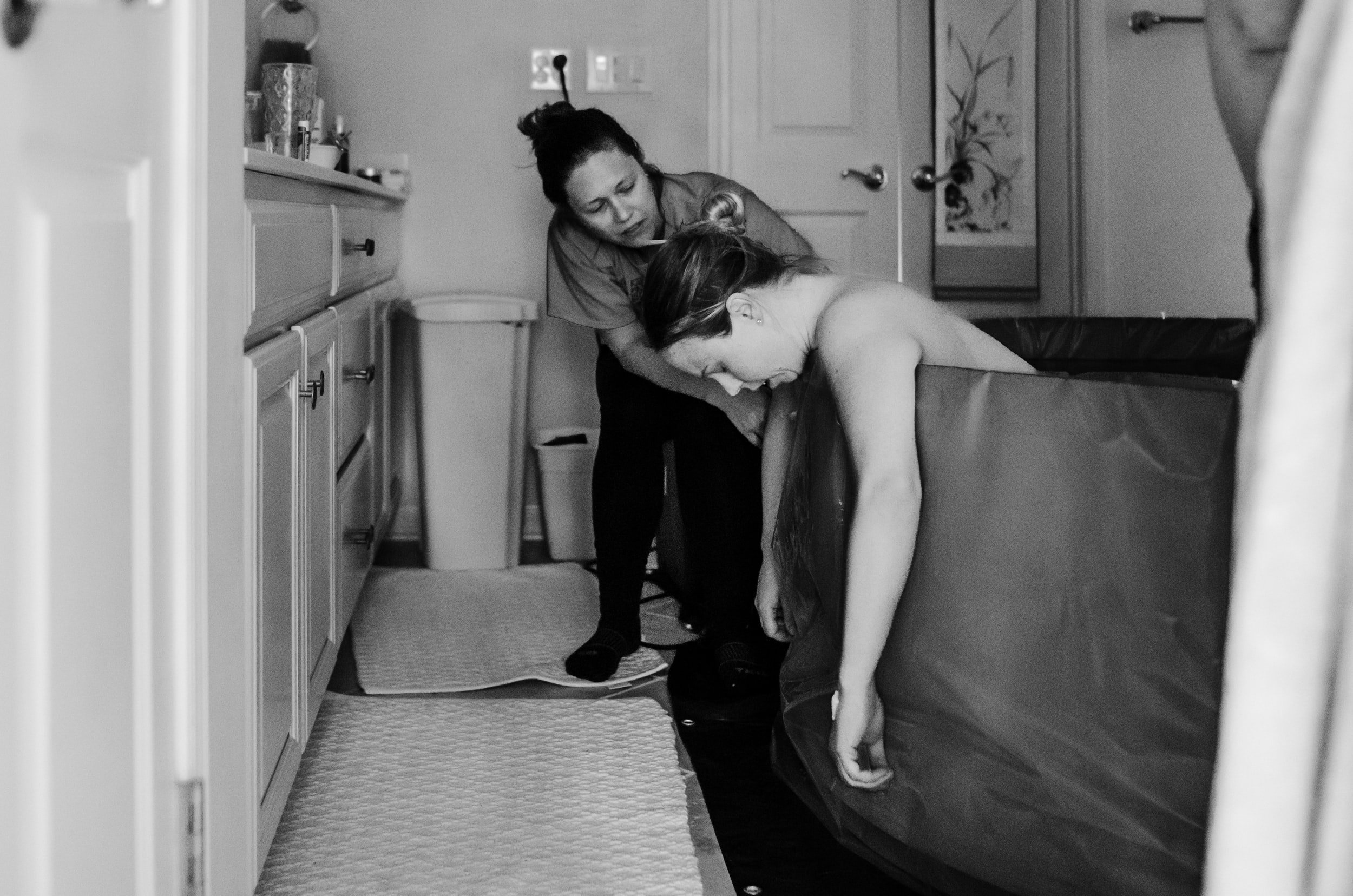7 Ways to Cope with Labor, Naturally

Pregnancy is full of surprises. So when it’s time to finally meet your precious little one, the last thing you want is to feel unprepared for labor. I want to note that I’m using the term “naturally” here simply because that is how we google search for this type of information - but every birth is natural, whether you use medicine or not, vaginally or surgical. This post is about unmedicated ways to birth should you be interested in those options!
It’s true that some events during labor are unexpected and can be out of your control, but having an understanding of what you can control and taking charge of those things can make a world of a difference.
Pain during labor is inevitable, but it’s not something that you have to just “deal” with. I’ve had 3 unmedicated births, and my last (4th) was with an epidural. I’m happy to have been able to experience birth both ways and I definitely think there is a time and a place for both options!
That said - if you are curious what you can do yourself to cope with labor - Here are 7 ways to cope with labor without medicine..
-
Educate
There is so much to learn about labor and birth! Hormones, (unmedicated) pain relief, birthing methods - it’s a lot! But knowledge is power and the more you educate yourself beforehand and do your research, the more educated decisions you’ll be able to make (for you and your baby!) and the more positive experience you’ll have.
If you plan to give birth in the hospital, you’ll likely be offered education that covers the basics of prenatal and postpartum care, as well as pain relief options (epidural, drugs, etc.) offered during labor. But, pain relief and birthing methods are not a one size fits all, and what works for another person may not work for you. You owe it to yourself to do the research and know all of your options! Make sure you check out my Birth Guide which covers ALL of the ‘what to expects’ when it comes to Labor and Delivery.
2. Massage
It’s no secret that massage promotes relaxation, but did you know that it can also lessen those uncomfortable labor cramps and tightening sensations? Certain massage techniques have been shown to lessen labor pains, while others are helpful for reducing anxiety and stress.
Try practicing with your partner beforehand so you know what feels best to you and what techniques you’ll want to use during labor!
Another form of massage you may want to look into during pregnancy is perineal massage. Perineal massage should be discussed with your doctor/midwife first, but typically around 34-35 weeks is when you can begin! This massage can help prevent more serious tears (3rd and 4th degree), and can even increase blood flow and elasticity of the perineum, promoting more comfort during birth. Maybe “comfort” isn’t the right word, but you know what I’m saying!
3. Essential Oils
Essential oils have a vast array of uses and benefits. But when it comes to coping with labor, essential oils are best used as aromatherapy to boost your overall relaxation. Aren’t sure which oils to use? Play around with different blends before you’re due and find one that feels calming and where you are most at peace. It’s important to test them out now so that you know they won’t make you feel nauseous in labor (though this is still a possibility!)
This diffuser blend is a go-to for me when I’m feeling stressed:
-
2 drops Lavender
-
2 drops Orange
-
2 drops Bergamot
Check out this blog for a few more of my favorite essential oil blends for helping with the feelings around anxiety and stress!
4. Add Heat
Did you know that heat has an immediate effect on pain? It encourages your body to release natural painkillers and is a great way to cope with labor. The two main places you can put heat to be most effective for pain relief during labor are the lower back and lower abdomen. Warm washcloths or heat packs can be used, but make sure they are not too hot, and don’t use this if you do have an epidural since you won’t know how hot the temperature is if your back is not completely feeling the sensation. You can even ask your doctor/midwife to add a warm compress to your perineum for added comfort and support while giving birth.
5. Water
Immersion in warm water is a great way to cope with labor naturally! Not only will the water help you relax in between contractions, but it has also been shown to decrease stress hormones as well as increase the body’s natural production of endorphins which aid in pain relief. Not to mention the positive effects warm water can have on your fatigued muscles!
If you plan on giving birth in a hospital, you’ll want to talk with your doctor/midwife first about laboring in the tub or shower to make sure your hospital allows it.
6. Mobilize
Laying on a bed during the entirety of your labor and birth process is not the ideal position for birth, and you’ll likely be very uncomfortable if not medicated. I remember being completely unable to lay down in any position while in labor! So my advice to you is - prior to labor - research and consider being active during labor and utilizing more upright labor positions. There are SO MANY benefits of being upright during labor!
Some of them are:
-
Contractions can be stronger, shortening the duration of labor
-
Gravity assists with baby’s descent and also keeps pressure on your cervix
-
Being upright can reduce labor pains
-
Pelvic space is increased
7. Environment
The environment you create to welcome your baby is going to be what sets the tone for your labor and delivery. Keep the room however makes you feel most safe, secure, and relaxed. This is most likely going to be quiet, warm, and with the lights dimmed low. Keeping the lights low will also aid in melatonin production, which increases oxytocin and endorphins!
Coping with labor doesn’t have to be “routine”, and you are in control of the choices you make - even if you are in the hospital! You can be creative about making the environment work for you!
If you are looking for additional guidance and education leading up to your birth, check out my 1-1 doula services for some personalized support both virtually and in person!

